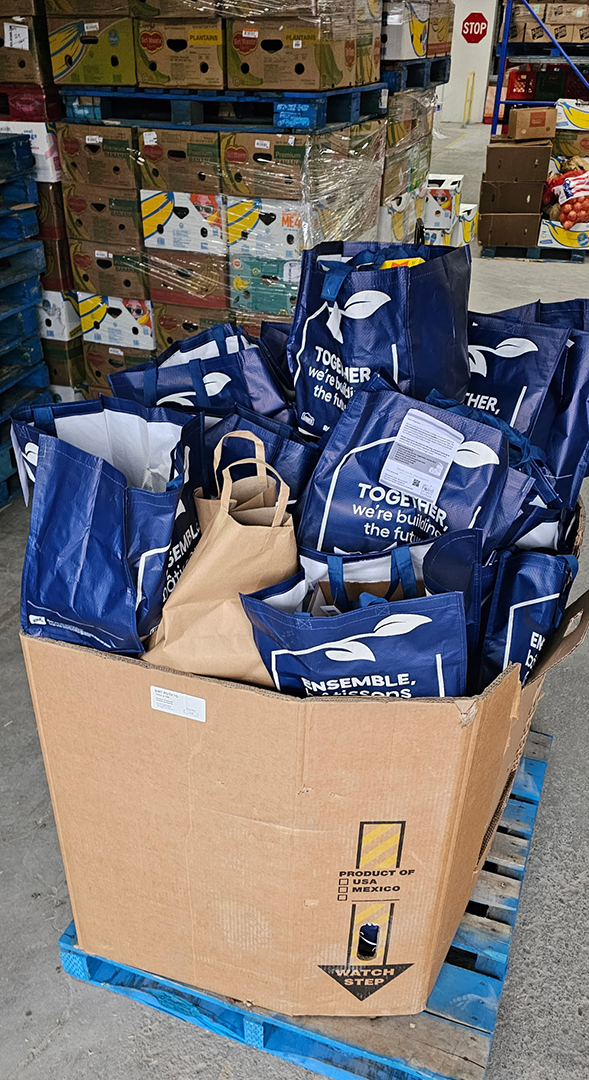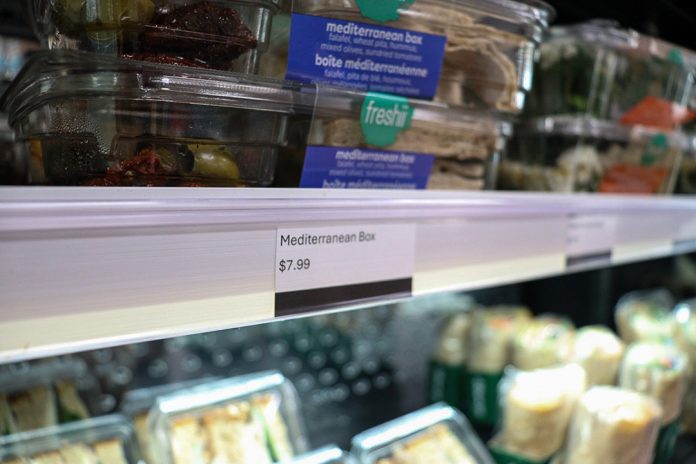With food prices continuing to climb, many Durham College students are finding it harder to afford meals, and some are taking action to help.
The average cost for groceries in Durham Region is around $1,100 per month and has been at a growing rate of 2.8 per cent each year.
In 2023, The Price of Eating Well in Durham Region survey conducted by Durham Region showed that 25 per cent of families were unable to feed their household. This number has continued to increase. Local food banks have been struggling to keep up with the needs of their residents.
Students at Durham College (DC), home to more than 13,000 students, have found it increasingly difficult to afford food on and off campus.
Last year, DC helped 1,150 students who needed extra assistance with the rising cost of living, with the DC Food Insecurity Bursary, a partnership with Feed the Need that helps students purchase fresh food, meat, dairy products, perishable and non-perishable items and toiletries during the holidays.

At the end of March, five second-year students from the Recreation and Leisure program ran a fundraiser for Feed The Need Durham. The students were able to raise four times their goal in both monetary and goods for the community.
“We choose to support Feed the Need with this fundraiser as this is a challenging time for so many. The goal that we set for ourselves was $500 in value. We were thrilled that we exceeded that goal. We are waiting for the final count but it is approximately $2,000,” said Matthew Lumley, a second-year recreation and leisure student, over email.
To better achieve their goals, the students had some creative ways to engage students. They had a “pick-a-duck” game. Any person who donated any amount or any food was able to pick a rubber duck out of the pond. There was an opportunity to win a prize and if they didn’t win, they still got to keep the duck.
Along with the ducks, the students attached descriptions of the charity and their initiatives to the bags they donated. They also delivered the bags themselves throughout the community near Durham College.
“Myself and my brother have a family friend who had some fantastic connections at some local No frills … I contacted them and asked if they were willing to donate. They were amazing. Both locations didn’t hesitate to give,” said Lumley.
Between their families, friends, college students, professors and community members, these students were able to bypass their original goal and help more of those in need.

The students attached information pamphlets to the bags that were donated. Photo credit: Matthew Lumley
For those on campus who need extra support, there is a food bank run through the Durham College Student Association (DCSA), and according to their website, students must register online. Once approved, students are able to access the food bank once a month. Alumni students can access this service up to six months after graduation.
Along with the food bank, Durham College’s Health and Wellness Centre partnered with the DCSA to publish their “From Hunger to Health” tool kit which was designed to aid students struggling with food insecurity.
Their goal is to help reduce food insecurity and increase food literacy by expanding students’ awareness of services, programs and supports. Along with sharing useful and relevant information the tool kit gives tips and strategies to help students save money and eat healthier.
The tool kit gives brief descriptions on what resources are available at Durham College for those struggling and generic advice for those who are overspending on their groceries.
Although food insecurity is often stigmatized, more students are facing similar challenges as food prices rise. There are resources for students who are struggling.
“I was not aware of food support systems, but I think that’s a great thing to have on campus,” said Megan Tomasone, a second-year broadcast student at Durham College. “I wish I knew about it before.”




